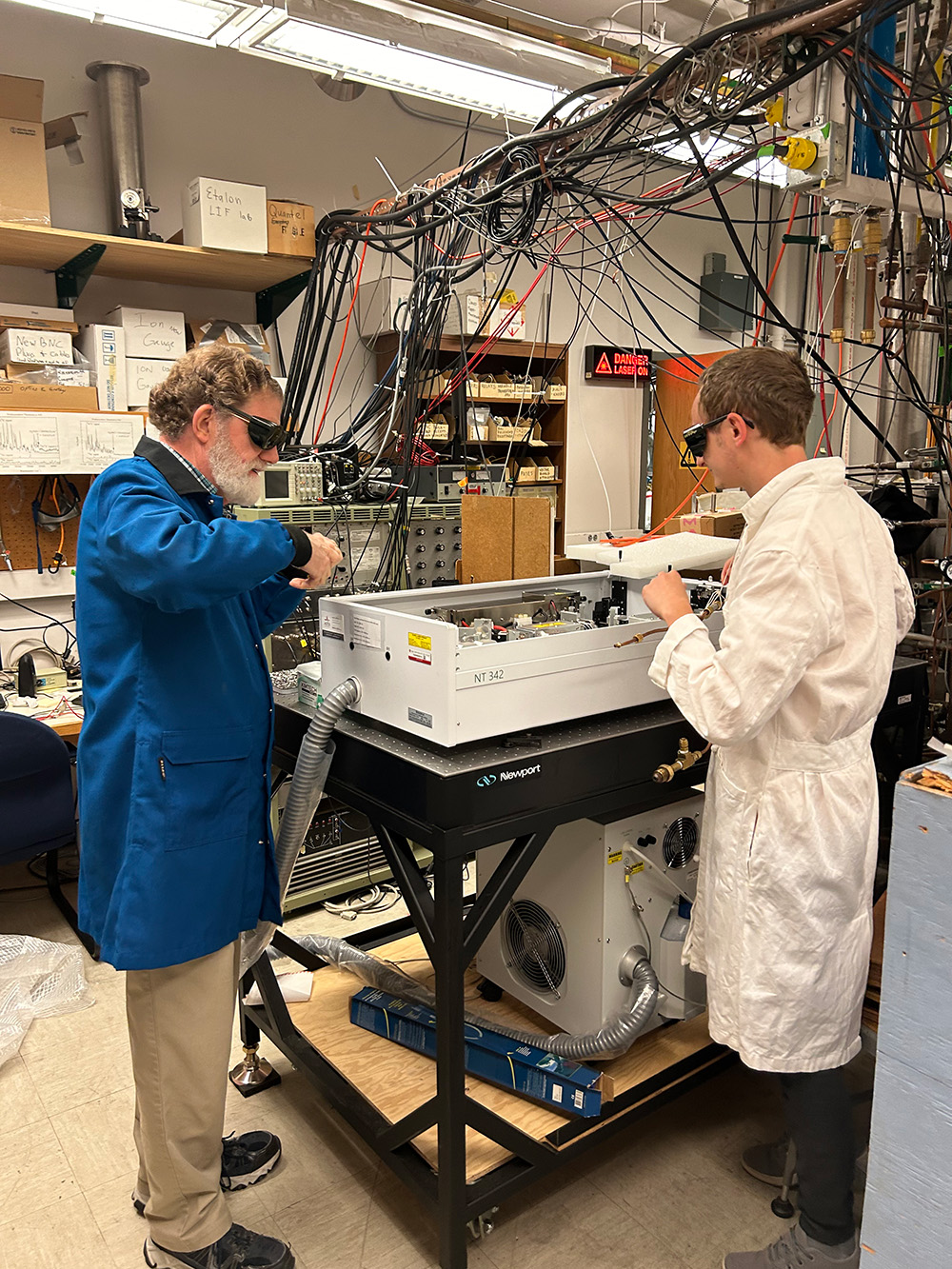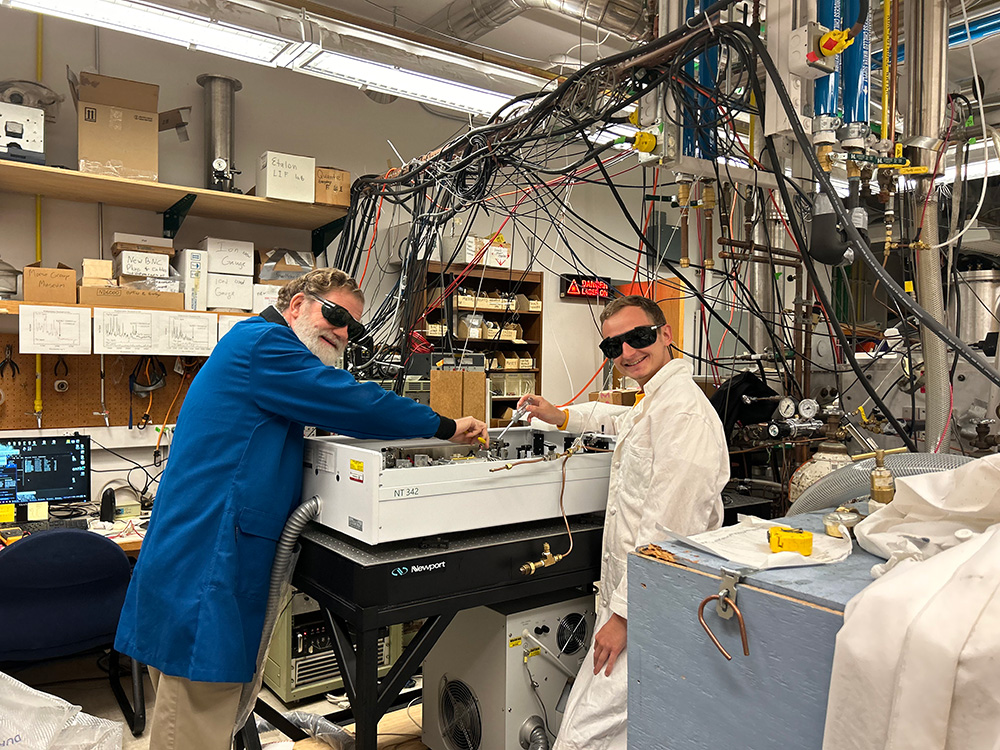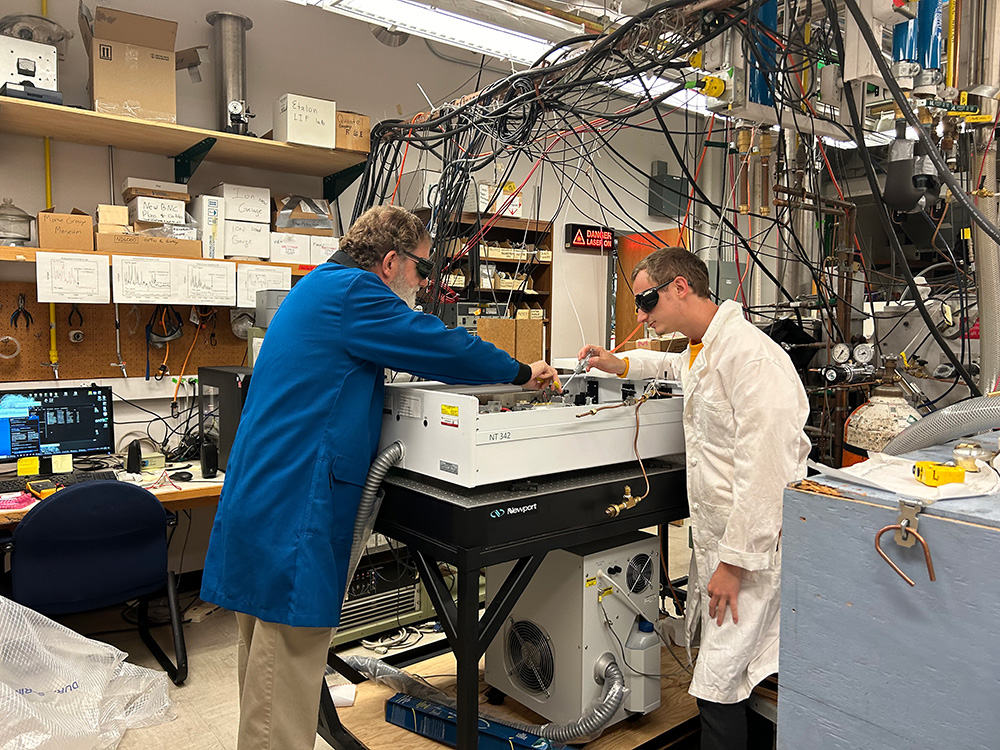

Dakota Merriles is a graduate student in the lab of Distinguished Professor Michael Morse. The central theme of his Ph.D. research is the spectroscopic and quantum chemical characterization of the electronic structure and chemical bonding of small d- and f-block metal boride, carbide, nitride, and oxide molecules. “I have systematically probed the chemical bonding between d- and f-block metals and 2p block elements by measuring their bond dissociation energies and ionization energies. These values can be measured to unprecedented accuracy using resonant two-photon ionization spectroscopy. I also conducted the first resonant three-photon ionization spectroscopy experiment in the Morse group, which enables a much larger range of molecules to be studied. The overall implication for this research is that important thermochemical data can be extracted from these species of interest, which can be of use to a wide variety of scientists, especially computational chemists that can use these precisely measured values as stringent benchmarks within their simulations and computations. The majority of the molecules and chemical systems that I have studied have never undergone experimental investigation before my work.”
Tell us a little bit about you, what motivates and inspires you?
The main things that motivate and inspire me in life are all derived from my family and friends. I have absorbed so much from the wonderful people around me and in times where the science might be tough or the days are tough, I can immediately find solace in the fact that I have an amazing support backing me all of the time.
Why did you choose the University of Utah Department of Chemistry?
I chose to attend the University of Utah Department of Chemistry because of the culture of the department and the strong research reputation that precedes the U. The people that I interact with in the department, students and faculty, all have admirable work-life balance which is super important for any graduate school career. The department hosted events and support that the faculty and staff afford the graduate students is very impressive.
Is there something that you will never forget from your Utah grad school experience?
I will never forget the amazing people that I met while at Utah. I have accumulated so many lifelong friends and memories from people in my cohort and in the department. Without everything that they experienced with me, this grad school experience would not have been as fulfilling as it was.
Do you have a favorite Professor(s) in Chemistry? If so, how did they impact your education at the U?
Of course, my favorite professor in Chemistry would have to be my professor and advisor Michael Morse. They impacted my education in so many ways it would be difficult to list or describe them all. The conversations I had with Michael on a daily basis about our science, the world, and ourselves are conversations that I will profoundly appreciate for forever. He has been more than a mentor to me, he has also become a lifetime friend of mine and I am extremely lucky to have that with my advisor as I totally know that isn’t the case for everyone that goes through grad school.
What aspects of chemistry are fascinating to you?
The aspects of chemistry that are most fascinating to me are the stories that are told for the first time. And by stories, I mean the intricate and careful detailing about a molecule or process that hasn’t happen before. I am a huge proponent of thinking that chemists never solve old problems, and so any new sort of detail that can be learned about a chemical system always fascinates me the most.
What advice do you have for incoming students?
The biggest advice I have for incoming students is knowing when to “give up”. The act of giving up isn’t just throwing your hands in the air and ignoring the problem- what I mean is recognizing exactly what the problem is and what you are not doing to fix it. That is a crucial facet of humility that comes along with science- we can’t be perfect all of the time. So, when you’re doing something and it’s not working- give up the procedure that you’re doing. Take a second. Then, re-visit it with a fresh mind and put productivity and efficiency at the forefront of your new solution. Time does not matter for producing good and sound science: effort does.
 |
 |
Pictures: Professor Michael Morse and Dakota in Morse’s Lab, Department of Chemistry, University of Utah
